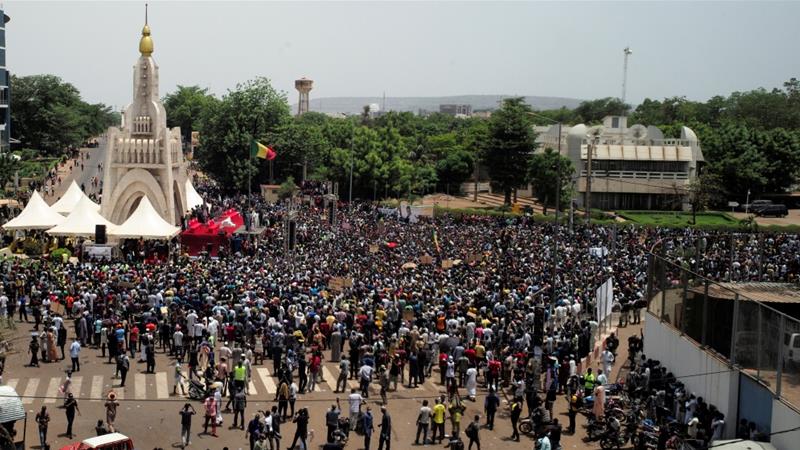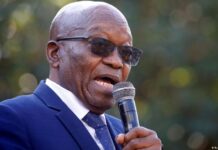The June 5 Movement also insisted for state’s parliament to be dissolved and called for a ‘republication transition’.
Mali’s protest movement has pressed on with a demand for embattled President Ibrahim Boubacar Keita to quit, as international mediators tried to defuse the crisis in the conflict-riven country.
At a news conference in the capital Bamako on Friday, the June 5 Movement also insisted that the West African state’s parliament be dissolved, and called for a “republican transition” from the current government.
The move came during soaring political tensions in Mali, which a delegation from the 15-nation West African regional bloc ECOWAS is trying to calm.
The June 5 Movement has triggered a showdown with the government with unflinching demands that Keita resign for his perceived failures in tackling the dire economy and eight-year in mali conflict with armed fighters.
After staging several anti-Keita protests last month, the latest rally, on July 10, turned violent and deepened the political impasse.
Three days of violence between protesters and security forces ensued, leaving 11 dead and 158 injured, according to an official tally, in the bloodiest bout of political unrest in years.
The June 5 Movement – a disparate alliance of political, social and civil-society leaders – has stuck to its core demand and rejected conciliatory gestures from the president.
ECOWAS mediators met Keita on Friday, according to a statement from the presidency.
They also met influential imam Mahmoud Dicko – who is viewed as the de facto leader of the movement despite not being a formal member.
“We really spoke as brothers and Africans, and I hope that, inshallah (God willing), something will come out of this that will give Mali back its greatness,” he said.
Impasse
At the news conference on Friday, one of the June 5 Movement’s leaders Ibrahim Ikassa Maiga restated the demand that Keita resign.
He also read from a statement entitled “note on exiting the crisis”, which urged the international community to lean on the president to step down.
Mali’s allies and neighbours are eager to avoid the fragile Sahel nation of some 20 million people sliding into chaos.
Swaths of the country lie outside of government control because of a rebellion that began in the north in 2012, and has since claimed thousands of lives and driven hundreds of thousands from their homes.
The UN high commissioner for human rights on Friday also urged both sides in Mali to show restraint, warning of escalating tensions.
Keita appears unlikely to offer his resignation, however, despite the opposition’s insistence.
The 75-year-old president came to power in 2013 to hopes that he would turn the country around.
Despite the presence of thousands of foreign troops in the country, armed fighters have swept into central Mali, as well as into neighbouring Burkina Faso and Niger.
For its part, the June 5 Movement appears to have heeded earlier calls for de-escalation.
On Wednesday, it scrapped a mass prayer rally scheduled for Friday in honour of recently killed protesters and urged Malians to commemorate the dead in mosques instead.













![Hotstar Premium Cookies 2019 [*100% Working & Daily Updated*] Hotstar Premium Cookies 2019 [*100% Working & Daily Updated*]](https://tahav.com/wp-content/uploads/2019/11/Hotstar-Premium-Cookies-Free-100x70.jpg)



